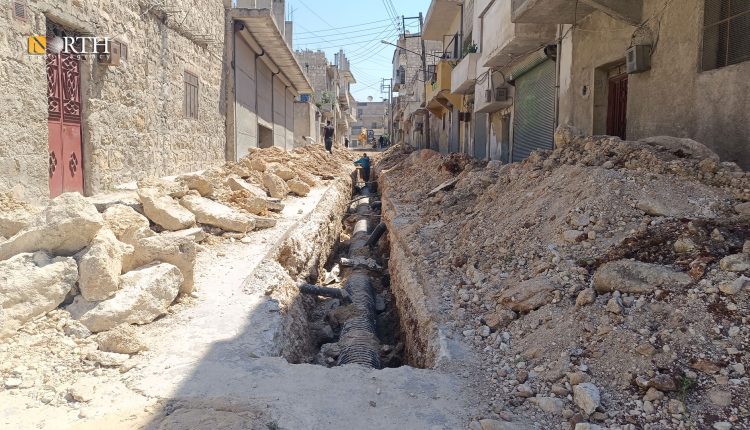
By Nour Eddin Omar
ALEPPO, Syria (North Press) – In a significant move toward improving basic infrastructure in the predominantly Kurdish neighborhoods of Sheikh Maqsoud (East and West) and Ashrafieh in Aleppo, local authorities are urging the city council to accelerate the implementation of a recently signed agreement that includes 14 service and administrative provisions aimed at easing the burdens on residents.
For years, the Autonomous Administration managed these areas through local councils, handling daily administrative and service-related matters largely in isolation from city governance.
Years of Neglect
Under the now-toppled Assad regime, these neighborhoods were systematically deprived of basic municipal services. Residents endured crumbling roads, broken sewage systems, chronic waste accumulation, and a lack of access to essential public utilities.
Following the outbreak of the Syrian conflict, the situation worsened with multiple sieges by regime forces, leaving large portions of infrastructure in ruins. Basic goods, fuel, and medicine were frequently blocked from entering. The notorious Fourth Division, previously commanded by Maher al-Assad, imposed heavy tolls on humanitarian deliveries, further isolating the communities.
A New Agreement
On April 1, Badran Jia Kurd, a senior figure in the Autonomous Administration in northeast Syria, announced the signing of a comprehensive administrative, security, and service-based agreement between the Kurdish Neighborhoods Council in Aleppo and the Syrian government.
The agreement affirms the full autonomy and unique character of these neighborhoods in administrative, cultural, security, and political matters. It establishes mechanisms for coordination with Aleppo’s municipal and security institutions and allows Internal Security Forces (Asayish) to maintain checkpoints, in cooperation with the Ministry of Interior, without interference from external armed groups.
Additionally, the agreement calls for the release of detainees and mutual exchange of prisoners, and maintains the current educational system pending broader decisions in northern and eastern Syria.
A central clause involves merging the People’s Municipality in the Kurdish neighborhoods with Aleppo’s City Council, and creating joint committees to oversee implementation. Co-mayor Amina Bayram told North Press that several community meetings have been held to identify urgent needs, including repairing sewage lines, supplying sanitation equipment, and cleaning up debris left from the February 2023 earthquake.
Partial Progress
“Eight out of the 14 provisions have been implemented,” Bayram said. “These include replacing sewage pipelines and supplying heavy equipment, such as bulldozers, to help remove dirt mounds and barriers from seven key locations to improve mobility for residents.”
Bayram emphasized that coordination with Aleppo’s city council is ongoing, though some critical provisions remain pending. These include the delivery of garbage bins, compactor trucks, pesticides, and modern sanitation equipment to replace manual tools.
Large parts of Sheikh Maqsoud and Ashrafieh still suffer from frequent electricity outages due to damaged or stolen transformers during the war. The neighborhoods also lack functioning groundwater wells, compounding the drinking water crisis and increasing costs for residents who rely on private tankers.
“If all provisions are implemented, about 30 percent of the burdens on residents will be alleviated,” Bayram added. “While other parts of Aleppo have received consistent service delivery, Kurdish neighborhoods were long excluded—despite being geographically close to better-served areas like al-Jalaa.”
Ongoing Negotiations
Although service work has begun in parts of the neighborhood, Aleppo’s interim government city officials have yet to publicly comment on the status of the remaining provisions. Meanwhile, local officials continue to engage in discussions aimed at achieving a comprehensive and inclusive municipal framework.
Bayram concluded by stressing the urgent need for modern sanitation tools, electricity infrastructure repairs, and access to potable water—highlighting how meeting these demands would not only serve public health but restore dignity to long-marginalized communities in Aleppo.
